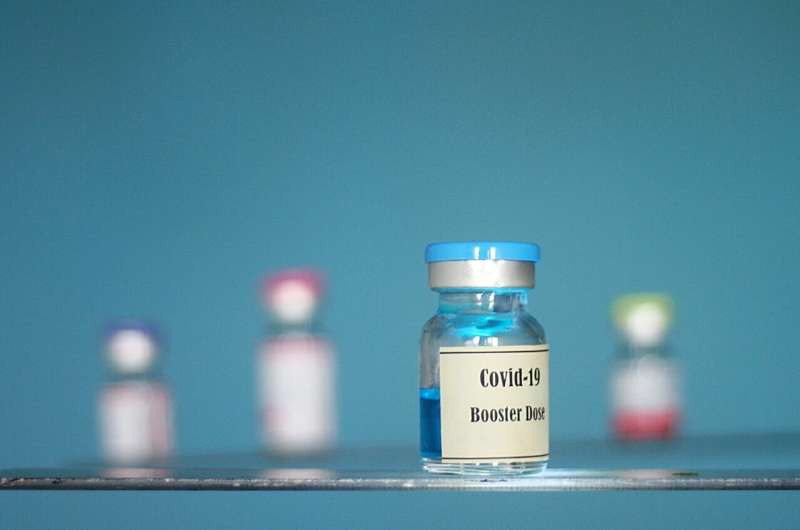This article has been reviewed according to Science X's editorial process and policies. Editors have highlighted the following attributes while ensuring the content's credibility:
fact-checked
trusted source
proofread
Fractional COVID-19 booster vaccines produce similar immune response as full doses, study shows

Reducing the dose of a widely used COVID-19 booster vaccine produces a similar immune response in adults to a full dose with fewer side effects, according to a new study.
The research, led by Murdoch Children's Research Institute (MCRI) and the National Center for Communicable Diseases in Mongolia, found that a half dose of a Pfizer COVID-19 booster vaccine elicited a non-inferior immune response to a full dose in Mongolian adults who previously had AstraZeneca or Sinopharm COVID-19 shots. But it found half-dose boosting may be less effective in adults primed with the Sputnik V COVID-19 vaccine.
The research is part of an international clinical trial, which also includes Australia and Indonesia, that's investigating the different COVID-19 booster shot approaches to help guide future vaccination strategies.
The first batch of findings, published in The Lancet Regional Health—Western Pacific, and involving 601 participants over 18 years old from Mongolia, reports on the initial responses seen 28-days after vaccination. The study is the first of its kind to assess and compare COVID-19 vaccines widely used in low- and middle-income countries.
MCRI Professor Kim Mulholland, who also sits on the WHO SAGE committee, said the study found that fractional doses elicited an immune response that was non-inferior to a full dose with fewer side effects and was less costly.
"Fractional dosing may improve COVID-19 booster acceptability and uptake and reduce the per-dose cost of COVID-19 booster programs," he said. "Policymakers and immunization advisory committees can draw upon this data to make flexible boosting schedules decisions."
The study found half-dose boosted participants reported fewer local reactions than those receiving full doses (60 percent versus 72 percent) including less pain and tenderness. They also reported fewer systemic reactions (25 percent versus 32 percent) including less fevers, vomiting, diarrhea and headaches.
The cohort will be followed up at six and 12 months with the data to answer key questions on other aspects of the immune response including the rate of waning and breakthrough infections.
Dr. Melanie Saville, Executive Director of R&D at CEPI said, "This CEPI-funded study has generated valuable data about combinations of vaccines that have been widely distributed through COVAX, which will help to inform future booster strategies in countries in the global south. Fractional dosing can contribute to equitable access by making vaccination more acceptable and less costly."
Researchers from Onoshmed Laboratory, Sukhbaatar District Health Center, General Laboratory of Clinical Pathology, the University of Melbourne, Mongolian National University of Medical Sciences, Bayangol District Health Center, Mongolia Ministry of Health and the National Center for Public Health in Mongolia also contributed to the findings.
More information: Tsetsegsaikhan Batmunkh et al, Immunogenicity, safety, and reactogenicity of a half- versus full-dose BNT162b2 (Pfizer-BioNTech) booster following a two-dose ChAdOx1 nCoV-19, BBIBP-CorV, or Gam-COVID-Vac priming schedule in Mongolia: a randomised, controlled, non-inferiority trial, The Lancet Regional Health—Western Pacific (2023). DOI: 10.1016/j.lanwpc.2023.100953




















